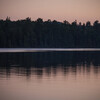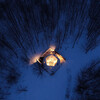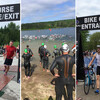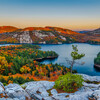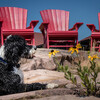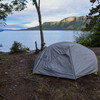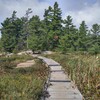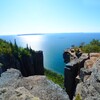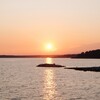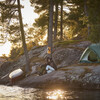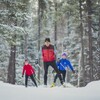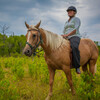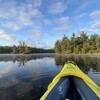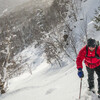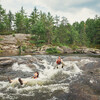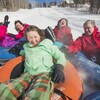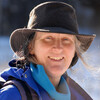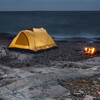
Guiding The British Invasion
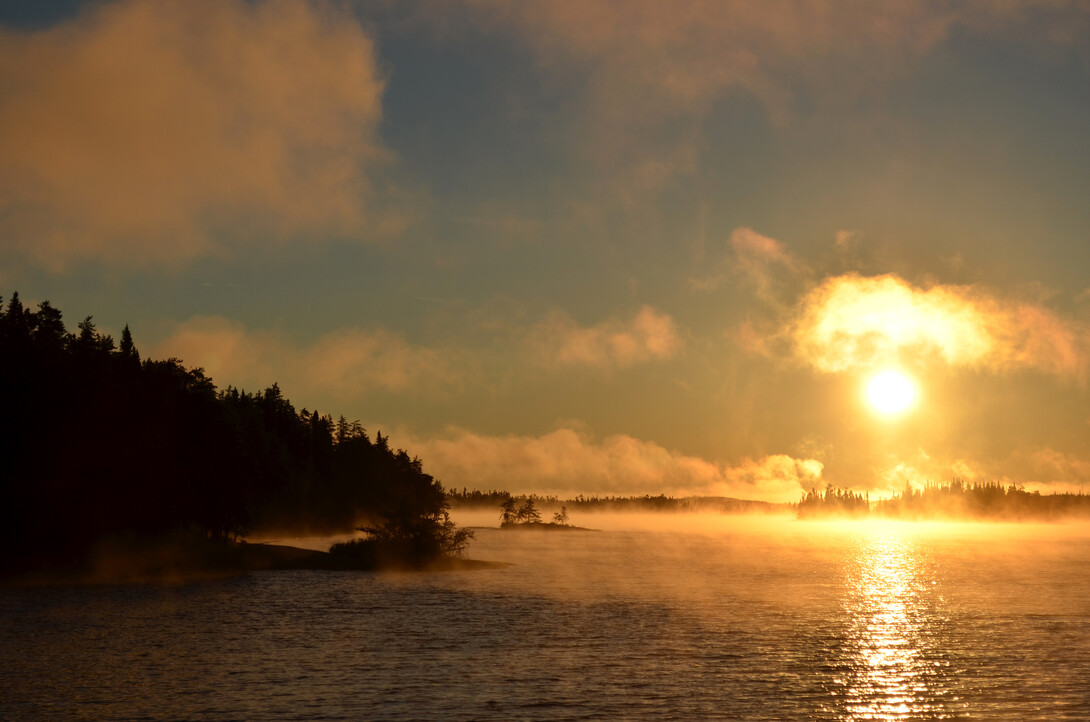
It happens every time. I've climbed in, chosen my spot, and fastened my seat belt, and then little knot forms in the pit of my stomach and starts to tighten. A seemingly lackadaisical approach to the required paperwork and the offer of battered ear-defenders do little to alleviate my trepidation. But at last the engine fires up and we start to move.
Just then the kid behind the wheel turns around and says “hey, anybody see a map back there?” A frantic search reveals nothing. We're picking up speed now. “No? Like, a yellow one in a plastic bag under the seat?” More very frenzied rummaging about and... nothing. “Oh well, you guys got a park map then?” the kid yells. Now the trees whiz by as we chug along. I quickly dig out our map and hand it to him. He squints at it for a moment, frowns, then turns it right-side up and scrutinizes it again. The tight little knot in my belly has turned into a roiling cauldron of fear. But with a confident bob of his head he drops the map, flicks some switches, guns the engine, and with a sharp jolt we're off. As the floats break free of the water, my fear evaporates into pure, child-like wonder. We're flying! The lake beneath us shrinks and our pilot Ben Fairburn points us west towards clear blue skies and our destination: Woodland Caribou Provincial Park.
Ben isn't just taking us to a remarkable place. He is dropping us off for the start of an incredible journey. We are about to spend two weeks exploring the lakes and rivers of Canada's boreal forest with venerable bushcraft expert Ray Mears and a group of his clients from the UK. As we approach the lake where we're to land (after Ben's repeated scrutiny of our map), I muse on how appropriate it is for us to be relying on this 62-year-old De Havilland Beaver to get us to our put-in. This airplane is considered a workhorse of the North, and the greatest testament to its timeless design is the fact that these old birds have been in the air for 70 years. Like the Beaver, our canoe trip with Ray will be also be a bit of a flight back to the old days and the old ways of the past.

The pontoons gently kiss the surface of Wanda Lake and we taxi to a sandy beach, quickly unload, and then wave as Ben heads home, disappearing with a roar behind a stand of black spruce, the drone of his engine slowly fading leaving us in a complete and total silence. The setting sun brings us to our senses and we spring into action, searching for a campsite for our first night in Woodland Caribou.
My husband Reid and I have been invited along on this trip as Paddle Canada canoe instructors and co-guides. Only part of the group has made the flight in today, so in the failing light we pitch our tents, make a communal dinner, introduce ourselves, and get to know one another. Later as the stars appear, we are treated to the northern lights and serenaded by the distant sound of a waterfall. Morning brings sun, mist, and more aircraft. With the group finally reunited, we hold our first Classic Canoeing paddling lesson and discover that we have very quick learners who listen, watch, and then apply what we have taught them. It is truly rewarding to teach students like these, as they are a rare thing in Canada. Soon we are loaded up and on the water, our UK trip-mates immediately putting into practice all of what we have shown them.
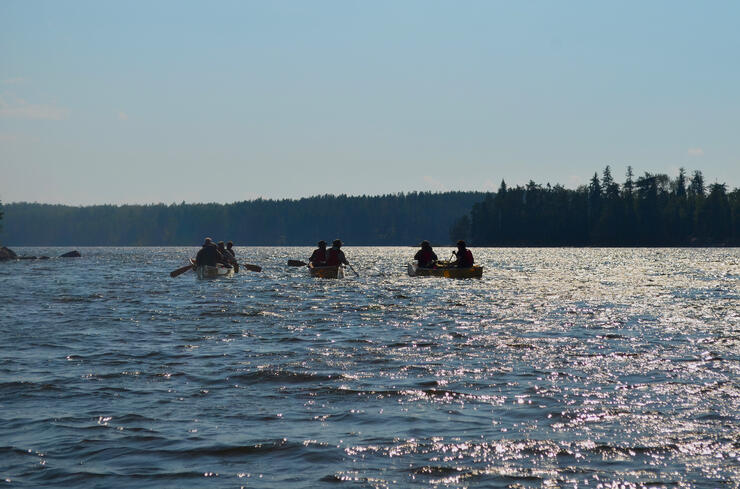
This will be our second trip working with Ray. I had first met him a number of years ago when he was in Canada filming, and we had immediately hit it off. Our first trip in 2013 was a revelation to me. At first I was curious to see how Ray did things and was anxious to follow his lead, but after a day or so I quickly realized that this was unlike any guided trip I had ever taken part in.
Of course we were teaching our clients, but it wasn't as much teaching as it was experiential learning. I was astonished and absolutely dumbfounded when, late in the afternoon of the first day of paddling, Ray pointed out some possible campsites on the clients' maps and told them to seek them out and make camp, adding that he would check in on them later that evening. This happened every night. They cooked for themselves. They cleaned for themselves. They learned to leave their sites just as they had found them. Ray's guiding technique was to develop their skills and build their confidence so that eventually they could do a trip on their own.
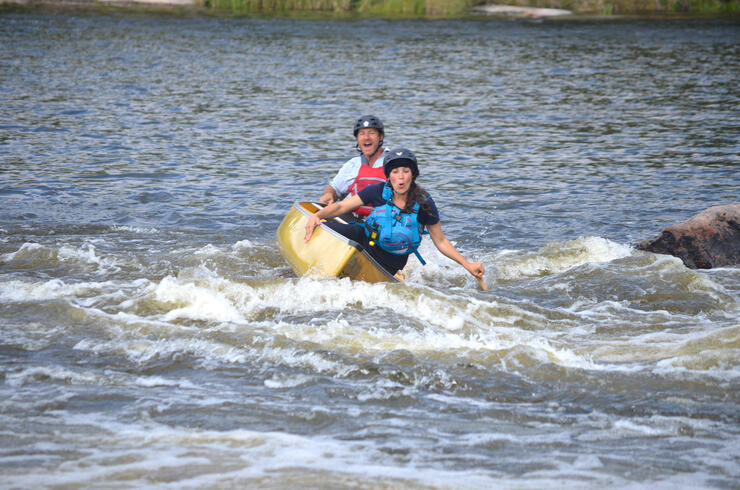
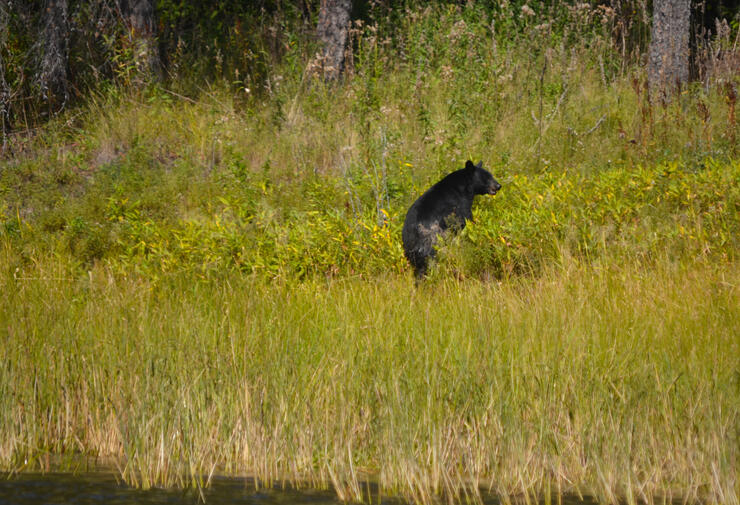
Why was this a revelation? It's because when I was younger I spent six wonderful summers as a wilderness guide, teaching, paddling, and portaging on many of Canada's finest rivers, doing what many would consider a dream job. And so it was! But because we were doing so much for the clients, there was always a niggling smudge of doubt in the back of my mind that by doing everything I wasn't doing them any favours, and that they weren't really learning much about living and travelling quietly on the land. Well, on that day Ray Mears had me rethinking everything.
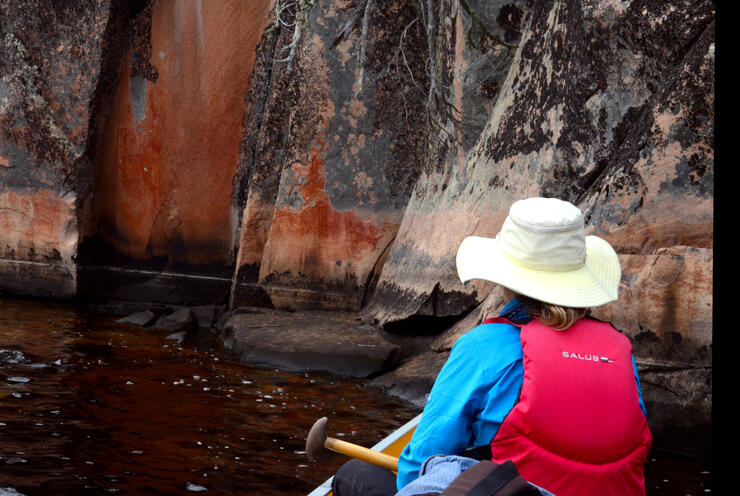
So here we are, back on the water in Woodland Caribou and heading into a strong current on Simeon Creek. Over the next two weeks our English trip-mates will learn to properly sharpen their knives; catch, fillet, and cook their own fish; become versed in the many edible and medicinal plants in the bush; practice the numerous ways to start and tend a fire, amongst many, many other skills.
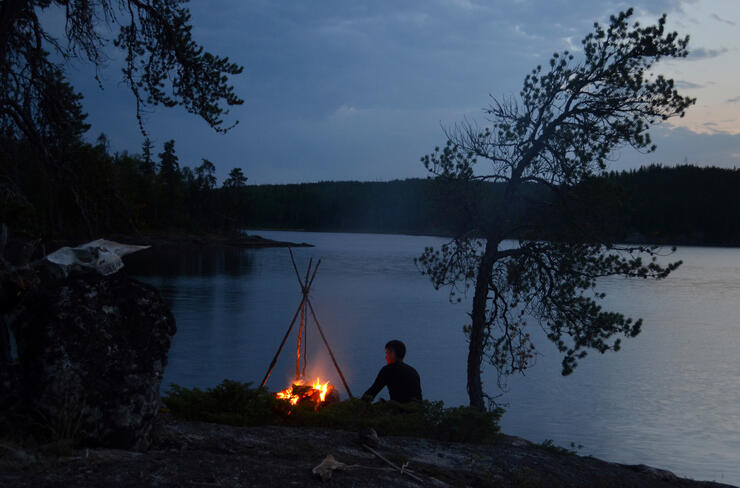
But right now they are struggling in the strong current, trying to figure out the tricks to navigating the challenging conditions. Apart from a few pointers about eddies and ferries, I bite my tongue hard and let them find their way. And it works! But I will still occasionally forget and slip into my old guiding ways... hoisting a client's pack or peppering them with too much information all at once. And then I watch Ray and see his quiet, minimalist style based on respect for the land and the people he travels with. He has faith in them. He believes that they will rise to a challenge. That they will persevere and learn from their mistakes and their triumphs. And that soon they will have both the confidence and humility to be able to confidently travel on the land on their own. That to me is the most important lesson, and the greatest gift, and is what guiding should be about. As the last canoe makes a final attainment in the current, I give them a congratulatory whoop and think to myself “this is going to be a great trip.”

Recommended Articles
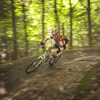
Adventure Races Ontario

Family Day Weekend
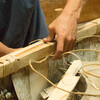
Jiimaan: Traditional canoe building
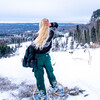
Best Winter Getaways in Ontario
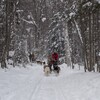
Dog Sledding in Ontario

Winter Romance
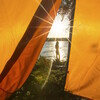
The Best Camping In Ontario
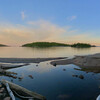
Explore Ontario’s Hidden Gems
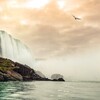
Beyond City Limits
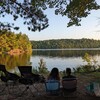
Guide to Restoule Provincial Park
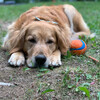
Dog-Friendly Campgrounds in Ontario
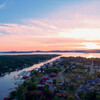
Ontario's Best Family Resorts
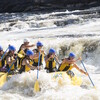
Call Us Crazy
Explore Underground: Ontario Caves
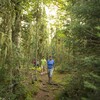
Ontario Old Growth Trails
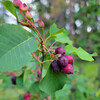
Go Foraging in Ontario
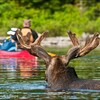
Want to photograph moose?
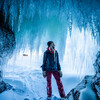
Plan Your Adventure

Winter Wonderland Fun
